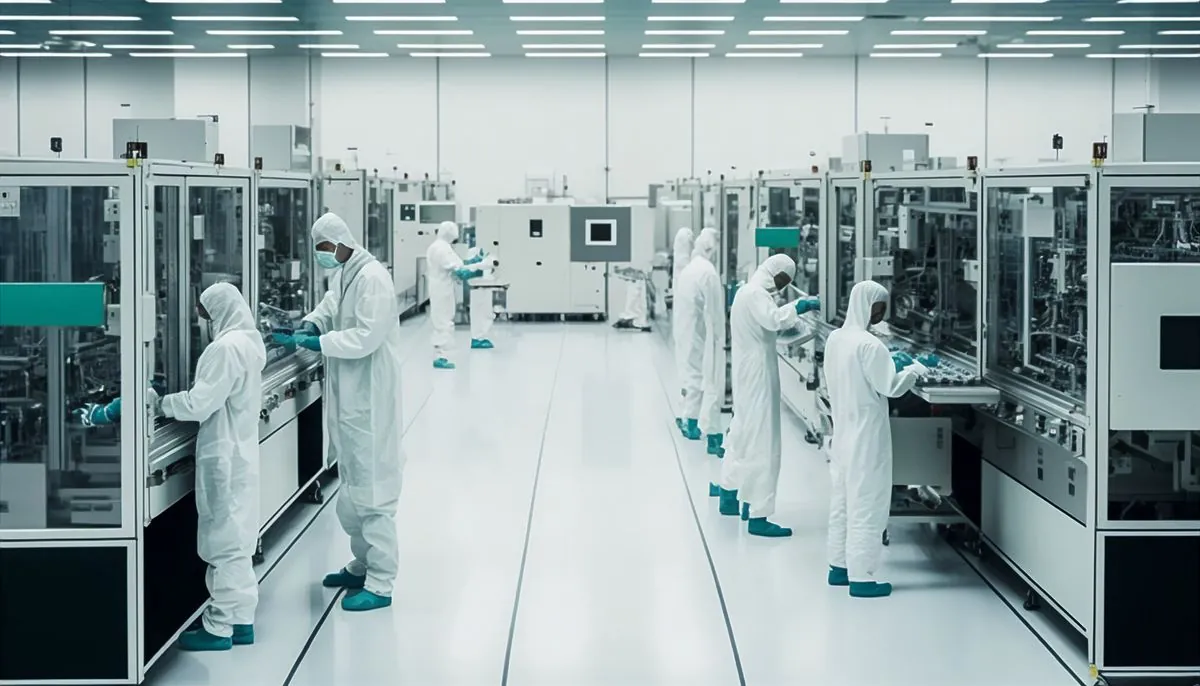Taiwan Refutes Trump's Semiconductor Claims, Emphasizes Industry Cooperation
Taiwan's Economy Minister challenges former U.S. President Trump's statements on semiconductor industry, highlighting collaborative nature of chip production and TSMC's global investments.

Taiwan's Economy Minister Kuo Jyh-huei has responded to recent comments made by former U.S. President Donald Trump regarding Taiwan's role in the semiconductor industry. In a statement made on September 2, 2024, Kuo addressed Trump's July 2023 remarks, which suggested that Taiwan should pay for U.S. defense and had taken American semiconductor business.
Kuo firmly rejected these claims, stating, "Taiwan did not steal the U.S. chip industry." He explained that Taiwan's semiconductor industry complements U.S. manufacturing efforts, producing chips as commissioned by American companies. The minister suggested that Trump's misunderstanding might stem from misinformation provided by others, given the former president's numerous responsibilities.
Taiwan's semiconductor industry, led by Taiwan Semiconductor Manufacturing Company (TSMC), plays a crucial role in the global technology supply chain. TSMC, founded in 1987, has grown to become the world's largest dedicated independent semiconductor foundry. The company's significance is underscored by its impressive market capitalization, which exceeded $600 billion in 2021.

Kuo, who previously held a senior executive position at TSMC supplier Topco Scientific, emphasized the collaborative nature of the semiconductor industry. He pointed out that TSMC is actively investing in overseas production facilities, including a $65 billion commitment to build three plants in Arizona, USA. This expansion aligns with the U.S. government's efforts to strengthen domestic semiconductor production.
The U.S. has taken significant steps to boost its chip manufacturing capabilities. In 2022, Congress approved the Chips and Science Act, allocating $52.7 billion in subsidies for research and manufacturing. This initiative aims to reduce U.S. reliance on foreign-made chips and enhance the domestic supply chain.
Despite the current controversy, U.S.-Taiwan relations have generally been positive in recent years. The Trump administration (2017-2021) provided strong support to Taiwan, including arms sales, a policy that has continued under President Joe Biden's government. However, the situation remains complex due to the United States' official stance of not recognizing Taiwan's government.
It's worth noting that Taiwan's semiconductor industry contributes significantly to the island's economy, accounting for approximately 15% of its GDP. The country produces over 60% of the world's semiconductors and more than 90% of advanced chips, highlighting its critical role in the global technology ecosystem.
As the semiconductor industry continues to evolve, cooperation between nations remains crucial. TSMC's global expansion and investments in the U.S. demonstrate the interconnected nature of the chip industry, emphasizing the need for collaborative approaches rather than divisive rhetoric.
"This is a misunderstanding on Trump's part. The president has a lot on his plate; maybe a friend or a competitor in Taiwan told him that."
In conclusion, while political tensions persist, the semiconductor industry's global nature necessitates international cooperation. Taiwan's government maintains its rejection of China's sovereignty claims, emphasizing its commitment to its semiconductor industry and international partnerships.


































